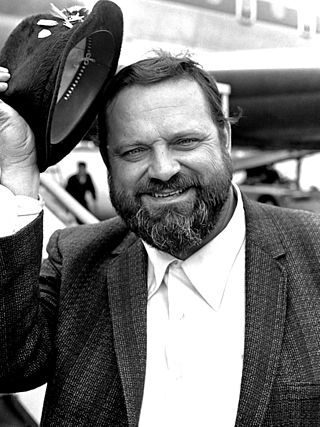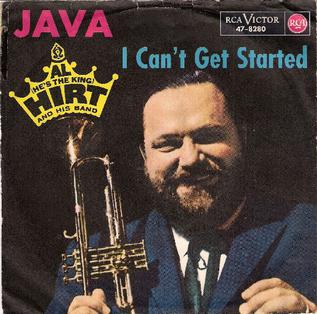The Four Horsemen of the Apocalypse are four beings described in the New Testament's Book of Revelation.

Alois Maxwell "Al" Hirt was an American trumpeter and bandleader. He is best remembered for his million-selling recordings of "Java" and the accompanying album Honey in the Horn (1963), and for the theme music to The Green Hornet. His nicknames included "Jumbo" and "The Round Mound of Sound". Colin Escott, an author of musician biographies, wrote that RCA Victor, for which Hirt had recorded most of his best-selling recordings and for which he had spent most of his professional recording career, had dubbed him with another moniker: "The King." Hirt was inducted into The Louisiana Music Hall of Fame in November 2009. He received eight Grammy nominations during his lifetime, including winning the Grammy award in 1964 for his version of "Java".
Black Rose or Black Roses may refer to:

Carny, also spelled carnie, is an informal term used in North America for a traveling carnival employee, and the language they use, particularly when the employee operates a game ("joint"), food stand, or ride at a carnival. The term "showie" is used synonymously in Australia, while "showman" is used in the United Kingdom.
Floss commonly refers to:
A symphony is an extended piece of music for orchestra, especially one in sonata form.
Arrival(s) or The Arrival(s) may refer to:
Grapes of Wrath may refer to:
Messiah is a title given to a saviour or liberator of a group of people in Abrahamic religions.
Omega is the twenty-fourth and last letter of the Greek alphabet. Omega may also refer to:
"Three Little Words" is a popular song with music by Harry Ruby and lyrics by Bert Kalmar, published in 1930.
"Laura" is a 1945 popular song. The music, composed by David Raksin for the 1944 movie Laura, which starred Gene Tierney and Dana Andrews, is heard frequently in the movie. The film's director, Otto Preminger, had originally wanted to use Duke Ellington's "Sophisticated Lady" as the theme, but Raksin was not convinced that it was suitable. Angered, Preminger gave Raksin one weekend to compose an alternative melody. Raksin later said, and maintained for the rest of his days, that when, over that weekend, his wife sent him a "Dear John" letter, the haunting theme seemed to write itself.
"Baby Won't You Please Come Home" is a blues song written by Charles Warfield and Clarence Williams in 1919. The song's authorship is disputed; Warfield claims that he was the sole composer of the song.
"Last Date" is a 1960 instrumental written and performed by Floyd Cramer. It exemplifies the "slip note" style of piano playing that Cramer made popular. It peaked at number 11 on the country chart and at number two on the Hot 100 behind "Are You Lonesome Tonight?" by Elvis Presley. Cramer's recording inspired a number of successful cover versions, including a vocal adaptation by Conway Twitty.

"Java" is an instrumental adaptation from a 1958 LP of piano compositions, The Wild Sounds of New Orleans, by Tousan, also known as New Orleans producer/songwriter Allen Toussaint. As was the case of the rest of Toussaint's LP, "Java" was composed in studio, primarily by Toussaint.
"Cotton Candy" is an instrumental written by Russ Damon and recorded by Al Hirt for his 1964 album, Cotton Candy. The piece was also featured on Hirt's greatest hits album, The Best of Al Hirt.

Cotton Candy is an album by Al Hirt that was released in 1964 by RCA Victor. The album features the Anita Kerr Singers.
This page is based on this
Wikipedia article Text is available under the
CC BY-SA 4.0 license; additional terms may apply.
Images, videos and audio are available under their respective licenses.



